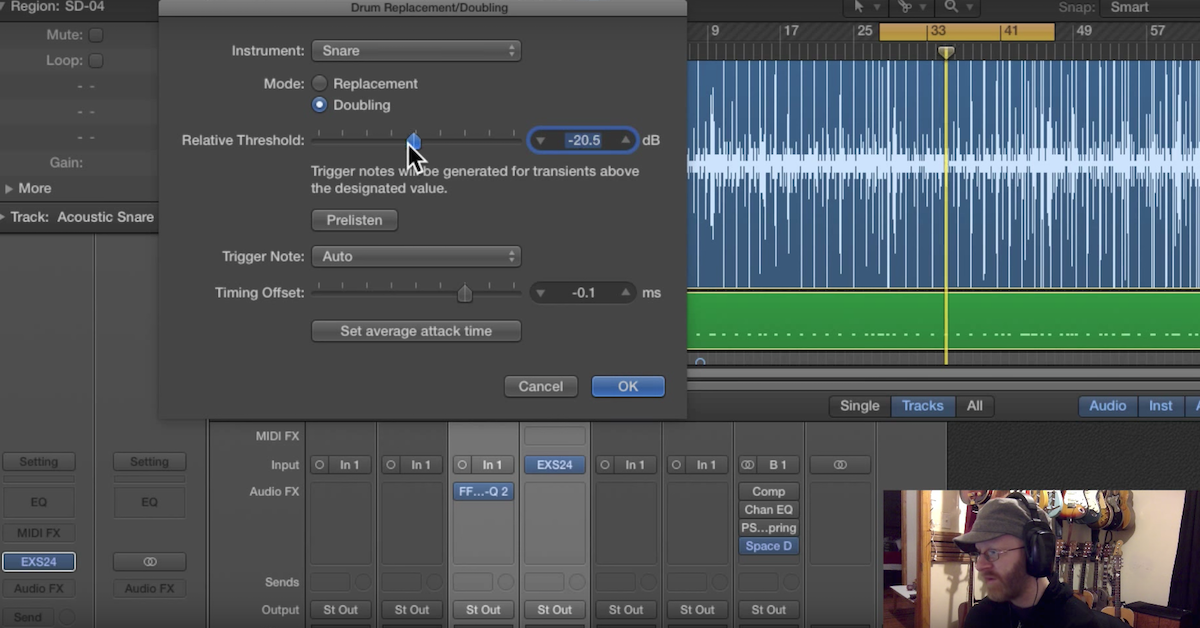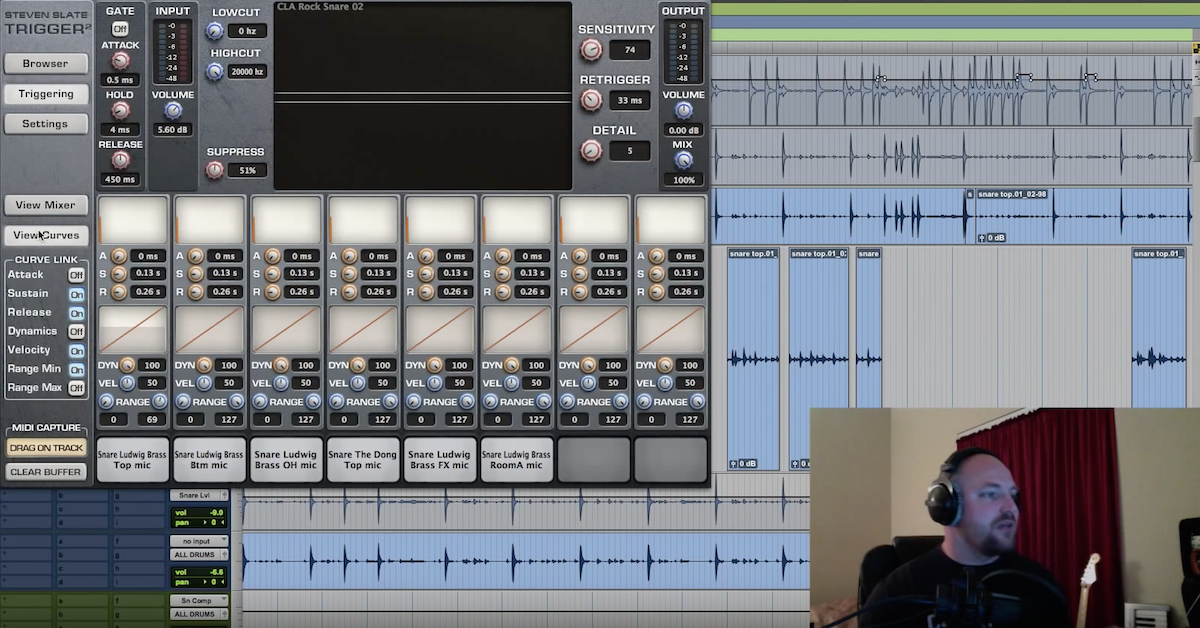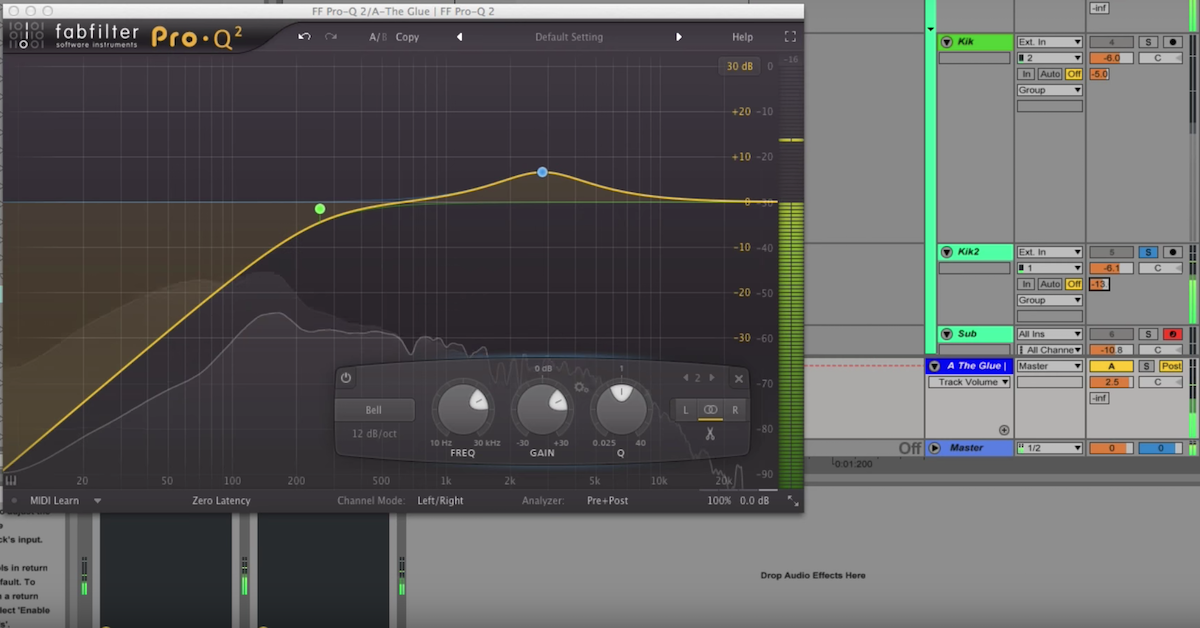9 Items That Can Save a Drum Recording Session
Article Content
1. Drumsticks
Don’t assume the drummer will show up with a variety of drum sticks.
The weight and tip of a stick can greatly affect tone. If the drummer is using nylon tip sticks and the sound is too bright on the cymbals it would be great to try some wood tip sticks. A thin stick vs. a fat stick will affect the drum differently as well.
And it’s not only the weight of the stick, but the mass that can give you more depth or attack. Remember my mantra, the first stage of EQ is at the instrument.
What if you’re on a session and an artist spontaneously wants to try banging on a drum? If you have some drums lying around but no sticks it can be a real creative bummer. This doesn’t mean you have to stock drum shop’s selection of sticks. Simply have a few that cover a few bases.
2. Brushes
Not every drummer is going to show up with brushes. Yes, they should, but they may not.
If you have a pair stashed away, you could save the day for some soft brush overdubs.
3. Clamps
Some drummers show up with all kinds of percussion they like to mount. Sure they might have a few clamps on them, but if you also have a few, it can allow for more flexibility when creativity hits.
When you’re doing percussion overdubs, it allows for easier use if you create a percussion station.
4. Shakers
Not all shakers are created equal. Find some that work in your room.
You should have at least 3 options: soft, medium and gritty. I’ve gone through many shakers to find the ones that work great on recordings.
Tip: An unopened container of Norton’s Salt is a really nice sounding shaker. Note, I said unopened. Don’t open it for your margarita and think it will still work as a shaker.
5. Extra Cymbal Cushions and Wing Nuts
You would be surprised how things disappear on a session. Wing nuts and cymbal cushions can disappear into the abyss right in front of your eyes. Always keep a few spares around. It’s likely it will show up again when you don’t need it. It’s likely they’re in the same place as all those missing socks.
Make sure to inspect the drum kit when people are leaving. Make sure nothing accidentally walks away. This has been known to happen to hi-hat clutches. Which brings up the point that you should have an extra clutch as well.
6. Snare Drum Wires
It’s rare when snare drum wires break, but if it does during a session you’re cooked. It takes a long time to get a great snare sound tuned and jiving in the mix.
Take a close look at your snare wires too too. Do they all use the same connectors? Some connect via a chord, some via a strap. It’s good to have a strong knowledge of your instruments.
7. Bass Drum Pedal
A lot of drummers like to bring their own bass drum pedal. Don’t expect that someone is going to bring their own though. Some people like to walk into a fully furnished studio. If a pedal breaks in a session, you’re… well, you know.
Some pedals are chain, some use a strap. Both of which can fail. Some fail in a way that can’t be repaired. I had a new Speed King pedal that failed. It broke in the shaft and couldn’t be fixed.
Having a backup doesn’t mean you have to buy the $600 DW double chain pedal. Just something reasonable as a backup.
8. Drum Heads
You never know when a head is going to break. If you have a house kit that drummers will be using, it’s important to have some extra heads.
The reason for a broken head isn’t always from hitting the drum. There could simply be an imperfection in the head.
9. Moon Gels
Drums resonate. Duh, right? There might be all kinds of weird resonance that comes from the drums on any given day. You can’t expect the incoming drummer to have a toolkit for tone shaping. I find Moon Gels to be an irreplaceable part of a session.
You can even use them on cymbals to affect the sustain. Console tape works in a pinch, but Moon Gels do a better job. It’s not a bad idea to have a few containers.
Tip: They’re non-edible. If you see the drummer putting them in their mouths, stop them immediately.
Conclusion
It may look like you’re doing the drummer’s job supplying these extras. In reality, it’s making your job easier. Killing unwanted resonance is going to save you time at mix down. You won’t have to be spending your time hunting down and trying to EQ a pesky resonance.
In the modern age, more and more studios have a nice instrument selection. A lot of studios even use this as an attraction. With that offering comes some other responsibilities that one wouldn’t expect.
These small touches will not only keep people coming back, but save a session from impending danger.





